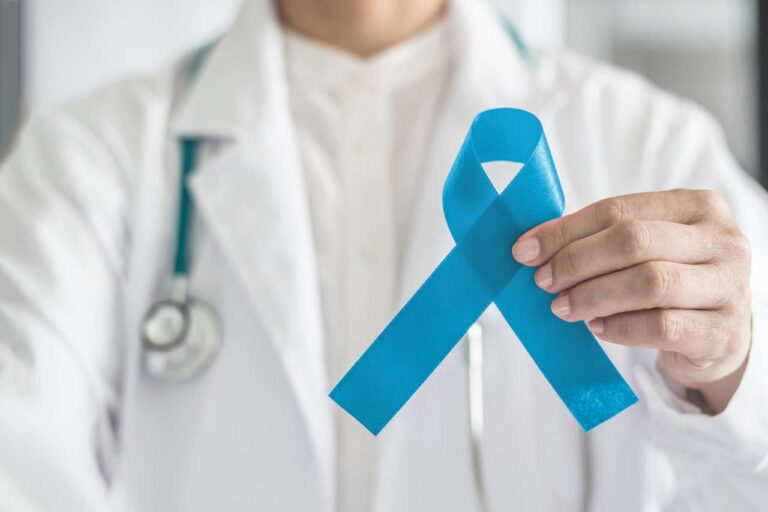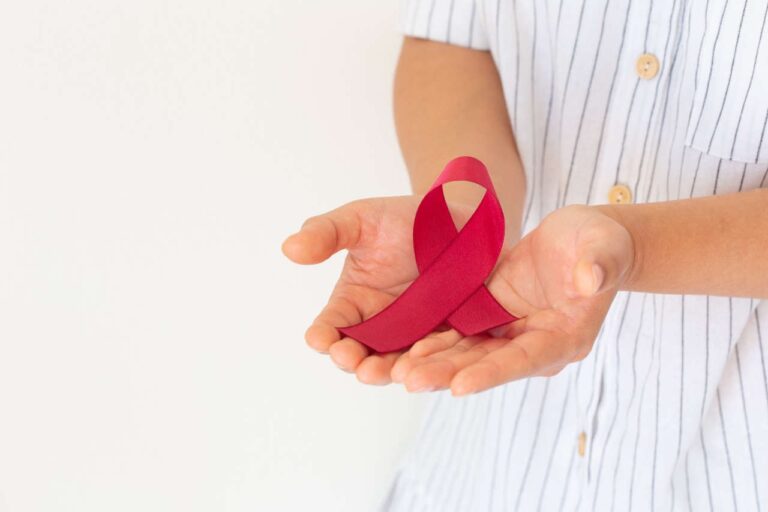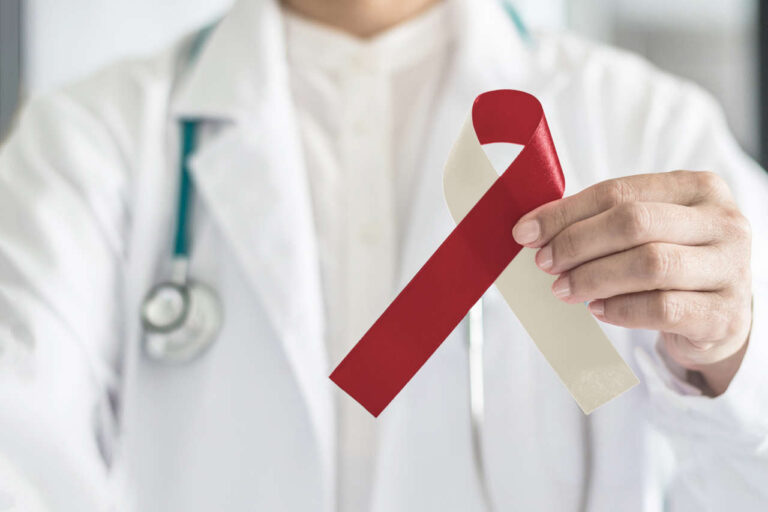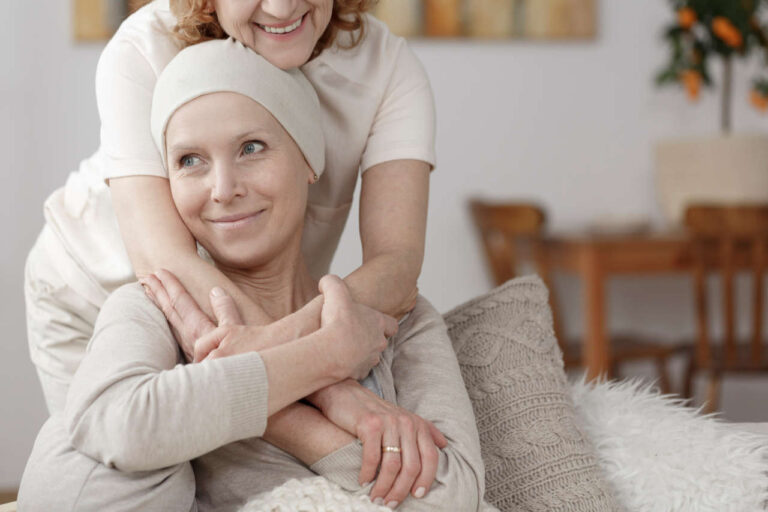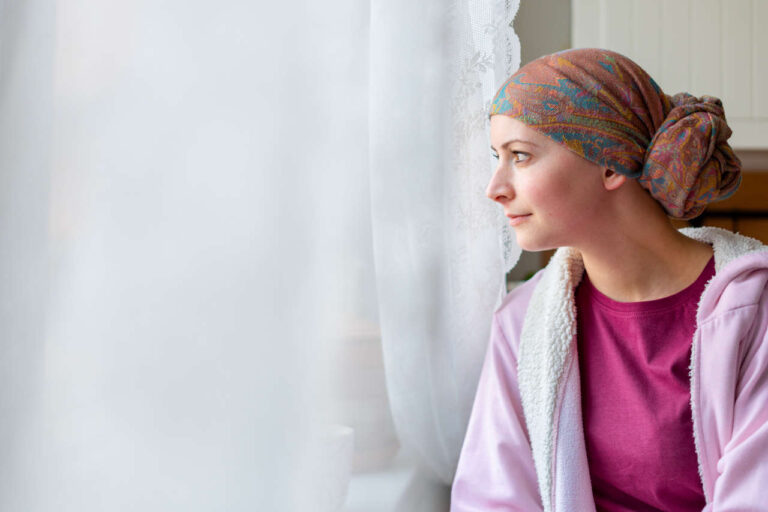
Kisqali is an oral medication used to treat certain types of advanced or metastatic breast cancer. It is considered a first-line treatment option. It is also effective in extending survival when combined with hormone therapy.
Get Chemotherapy Copay Assistance
Chemotherapy Financial AssistanceNovartis, a Swiss multinational pharmaceutical company, developed Kisqali. It works by blocking specific enzymes that promote cancer cell division.
The drug was discovered in the late 2000s as part of a research program to find inhibitors of cyclin-dependent kinases (CDKs). CDKs are enzymes involved in cell cycle regulation. Novartis recognized Kisqali’s potential as a cancer therapy and began clinical trials in breast cancer patients in 2013. In March 2017, the FDA approved the drug for the treatment of hormone receptor (HR)-positive, HER2-negative advanced or metastatic breast cancer in postmenopausal women. Later that year, the drug was approved for the same indication in Europe. The FDA expanded its approval to include premenopausal and perimenopausal women in July 2018.
Since its approval, Kisqali has become a great treatment option for advanced and metastatic breast cancer patients.
What Is Kisqali Used To Treat?
Kisqali is a brand-name prescription drug used to treat an advanced type of breast cancer in women. It is used to treat breast cancer that has all the following properties [1]:
- Metastatic or locally advanced: Kisqali can treat breast cancer that is advanced (metastatic) or locally advanced. Metastatic means that the cancer has spread to different body parts, including the bones, liver, brain, and lungs. Locally advanced means that the cancer has spread to the breast area and structures, such as nearby lymph nodes, muscle, and skin, but not to other body parts.
- Hormone receptor-positive (HR-positive): Kisqali can help with hormone receptor positive (HR+) breast cancer.
- HER2-negative (HER2-): Kisqali can help with a type of breast cancer that does not have the human epidermal growth factor receptor (HER2-).
Note: Kisqali’s safety and effectiveness in children are unknown.
How Kisqali Works
Kisqali is used to treat specific types of breast cancer. The active component in Kisqali is ribociclib. It works by inhibiting enzymes called CDK4 and CDK6. These enzymes regulate cell development in both cancerous and normal cells. These enzymes can become hyperactive in cancer cells, leading them to divide and grow uncontrollably. By blocking these enzymes, Kisqali can reduce or stop the growth of cancer cells in the body.
Side Effects
Like all medications, Kisqali can also cause side effects. In rare cases, it can also cause some severe side effects. The FDA has warned that Kisqali could cause fatal lung problems [7].
Here are some mild to severe side effects [1]:
Mild Side Effects

The following are some of the most common mild side effects of using Kisqali:
- Nausea
- Back pain
- Fatigue
- Vomiting
- Diarrhea
- Constipation
- Hair loss
- Low white blood cell counts
- Headache
Most of these side effects may disappear within a few days or weeks. Consult your doctor or pharmacist if they become more severe or do not go away.
Serious Side Effects
As stated earlier, serious side effects are rare but can occur. If you experience any of the listed serious side effects, contact your doctor immediately.
Serious side effects can include:
Heart problems: Kisqali can cause abnormal heartbeat, leading to death. Symptoms can include dizziness, fast heartbeat, faintness, and irregular heartbeat.
Liver problems: Severe liver problems can occur during treatment. Performing liver function tests before and during treatment is important. Symptoms of liver problems include loss of appetite, yellowing of your skin or the whites of your eyes, stomach pain, and dark urine.
Lung problems: You may encounter severe lung problems during Kisqali treatment, leading to death. Signs of the problem may be difficulty breathing, pain in the chest, and coughing.
Low white blood cell counts: While using Kisqali, low white blood cell counts are common and can lead to dangerous infections.
Severe skin problems: You may experience a severe rash that progressively worsens. Symptoms can include red or flushed skin, peeling skin, blisters, fever, and body aches.
Please note that the list of side effects provided is not comprehensive. Seek immediate medical attention if you experience any severe side effects.
Consult a Chemotherapy Specialist
Get Chemotherapy Treatment AssistanceDosage and Treatment
Kisqali is available in a 200 mg tablet form. The duration of one treatment cycle is 4 weeks. During the first 3 weeks of the cycle, three tablets totaling 600 mg are administered once daily with or without food. After the 3-week period, there is a 1-week break before the next cycle begins.
Note: If severe side effects occur, your doctor can lower your dose or stop the treatment.
Before Taking Kisqali
Kisqali should not be used if you are allergic to ribociclib or if you are also taking tamoxifen. Your doctor will order blood tests to check that you do not have any issues that might prevent you from safely taking Kisqali.
To ensure that the medication is safe for you, inform your doctor if you have ever had:
- Slow heartbeats
- A history of heart disease or a previous heart attack
- Long QT syndrome
- Liver disease
- Kidney disease
- Signs of infection (fever, chills)
Also, let your doctor know if you’ve gone through menopause. You may need to have a negative pregnancy test before starting this treatment.
Kisqali Cost
According to the official website, Kisqali tablets can cost around $6,000 to $15,000 per month, depending on your dose [5]. But the treatment’s actual cost depends on your insurance plan, location, and the pharmacy you visit. Contact us if you are interested in copay or financial assistance.
Speak to a Specialist
About Copay AssistanceFAQs
Here are answers to frequently asked questions about Kisqali:
Is Kisqali a kind of chemotherapy?
Yes. It is an oral chemotherapy drug that signals cancer cells to stop growing.
Is Kisqali safe to use during pregnancy?
Kisqali is not recommended during pregnancy because it could harm your unborn child. If you are a female of reproductive age taking Kisqali, you should take birth control during treatment and for 3 weeks after the last dosage. If you become pregnant while using this medicine, inform your healthcare provider immediately.
Is it safe to take Kisqali while breastfeeding?
Breastfeeding is not recommended while using Kisqali. We don’t know if the medicine can pass into your breast milk. But if it does, breastfeeding infants are in danger of serious harm. You should not breastfeed while taking this medication and for 3 weeks after your final dosage because of this risk. Talk with your provider about other options for feeding your baby during therapy.
What are the clinical benefits of Kisqali?
Kisqali is a drug that is used to treat hormone receptor-positive (HR+), human epidermal growth factor receptor-2 negative (HER2-) advanced breast cancer in women. It has some benefits over traditional treatments. Here are some clinical benefits of Kisqali:
- It can improve overall survival when used as a first-line treatment. According to a study, women treated with Kisqali and endocrine therapy lived about 1 year longer than women treated with endocrine therapy alone [8].
- It can also improve progression-free survival. According to a study, women treated with Kisqali and letrozole had 9 months of more progression-free survival than women treated with letrozole alone [8].
- Kisqali can improve the quality of life for patients [9].
Can Kisqali cause me to lose my hair?
Possibly. Hair loss is a very common side effect. Hair loss was reported in up to 33% of patients taking Kisqali in conjunction with other hormone treatments in studies [6]. If you are concerned about hair loss, talk with your provider.
REFERENCES:
- KISQALI® (ribociclib) for HR+, HER2- Metastatic Breast Cancer. (n.d.). https://www.us.kisqali.com/metastatic-breast-cancer/
- HIGHLIGHTS OF PRESCRIBING INFORMATION. (n.d.). https://www.novartis.com/us-en/sites/novartis_us/files/kisqali.pdf
- Office of the Commissioner. (2018). FDA approves first cancer drug through new oncology review pilot that enables greater development efficiency. U.S. Food And Drug Administration. https://www.fda.gov/news-events/press-announcements/fda-approves-first-cancer-drug-through-new-oncology-review-pilot-enables-greater-development#:~:text=Kisqali%20was%20first%20approved%20in,other%20parts%20of%20the%20body.
- Ribociclib Approval Expanded for Breast Cancer. (2018, August 20). National Cancer Institute. https://www.cancer.gov/news-events/cancer-currents-blog/2018/ribociclib-fda-expanded-approval-breast-cancer
- Cost Information | KISQALI® (ribociclib) Cost. (n.d.). https://www.patient.novartisoncology.com/kisqali-cost/
- DailyMed – KISQALI- ribociclib tablet, film coated. (n.d.). https://dailymed.nlm.nih.gov/dailymed/drugInfo.cfm?setid=aaeaef94-f3f5-4367-8ea2-b181d7be2da8
- ResearchU.S. Food And Drug Administration. https://www.fda.gov/drugs/drug-safety-and-availability/fda-warns-about-rare-severe-lung-inflammation-ibrance-kisqali-and-verzenio-breast-cancer
- Ribociclib Improves Survival in Advanced Breast Cancer. (2021, October 6). National Cancer Institute. https://www.cancer.gov/news-events/cancer-currents-blog/2021/ribociclib-improves-metastatic-breast-cancer-survival
- Admin. (2017, March 15). Kisqali® (ribociclib) for the Treatment of HR+/HER2- Metastatic Breast Cancer. Clinical Trials Arena. https://www.clinicaltrialsarena.com/projects/kisqali-ribociclib-for-the-treatment-of-hrher2-metastatic-breast-cancer/

